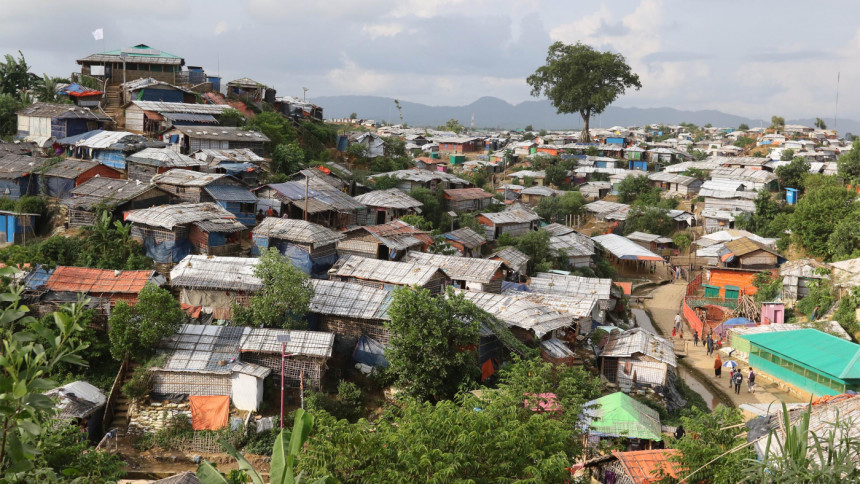Rohingyas Using Mobiles: 2.94 lakh SIMs to be blocked

The government is set to block a few lakh mobile connections that are currently being used in Rohingya camps in Cox’s Bazar as it ramps up its efforts to crack down on criminal activities by a section of the refugee population.
According to the SIM registration process, Rohingyas cannot get mobile connection, for which a national ID card or passport is needed.
The refugees have neither, and yet as many as 2.94 lakh of the total of 11 lakh of them have managed local SIMs, according to tests by the Bangladesh Telecommunication Regulatory Commission between November 19 and 21 in the camps in Ukhia and Teknaf upazilas.
“Our intelligence agencies have noticed that using these mobile connections some Rohingyas are engaging in lots of criminal activities,” Telecom Minister Mustafa Jabbar told The Daily Star on Monday evening.
Earlier in September, the telecom watchdog blocked 3G and 4G services in the camp areas with the view to checking the use of mobile communication applications like WhatsApp, Viber and WeChat by the Rohingyas.
Some of the Rohingyas used the apps to contact people in Myanmar and organise crimes on both sides of the border, said a BTRC official. Later, all services, except voice calls, were blocked in the area to tighten the situation.
Those were preceded by a blanket ban on SIM card sales in the area. A mobile court put five Rohingyas behind bars for setting up shops in Cox’s Bazar and selling mobile phones and SIM cards to refugees.
And yet, it appears none of the steps were fully effective in checking the Rohingyas from using mobile services.
The tests conducted by the BTRC technical team, which is comprised of representatives of all mobile operators, last month also found 3G and 4G reception of Banglalink and Teletalk.
“On the spot we directed that two operators’ representatives to block the signals,” said an official of the inspection team.
The two operators complied at once, so no punishment was recommended for them in the final report on the test drive, which was handed in to the BTRC chairman yesterday.
When the regulator blocks the SIMs there is a possibility that some Bangladeshi users’ might get barred as well. But the numbers will be reopened if the subscriber can authenticate their identities, said officials.
The expert team also detected reception of Myanmar’s state-owned mobile operator MPT: they used an MPT SIM (09889042845) and got network few kilometres inside Bangladesh.
The team could not check whether the other Burmese mobile operators’ SIMs work in Bangladesh too. Myanmar has three other mobile operators: Telenor, Ooredoo and Mytel.
Bangladesh’s law enforcement agencies held Rohingyas with MPT mobile connections many times before.
Subsequently, the government has decided to send a letter to Myanmar asking them to restrict their networks and at the same time inform the issue to the International Telecommunication Regulatory Commission, a United Nations body that handles issues pertaining to information and communications technology around the globe.
The government thought of installing jammers to block the Burmese SIMs.
But that will be highly costly and at the same time it will not be full proof, Jabbar said.
“And that’s why we have decided to use the diplomatic channels to resolve the problems. Hope we will get a solution from this process.”


 For all latest news, follow The Daily Star's Google News channel.
For all latest news, follow The Daily Star's Google News channel. 



Comments